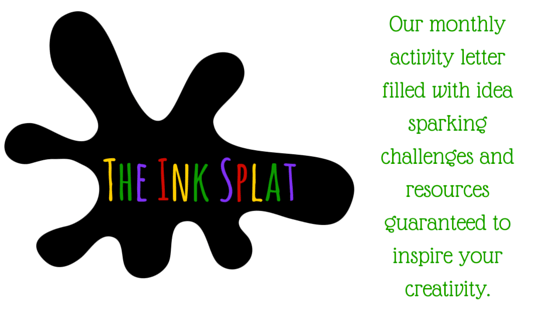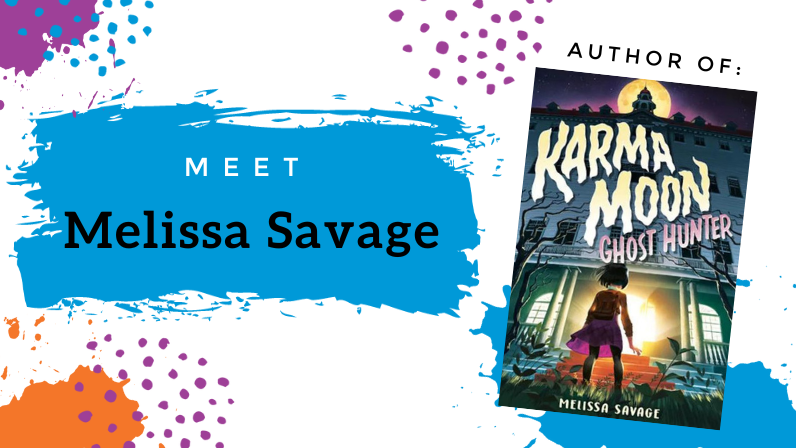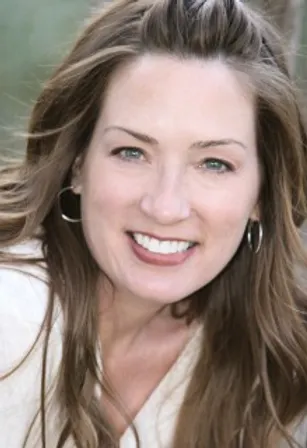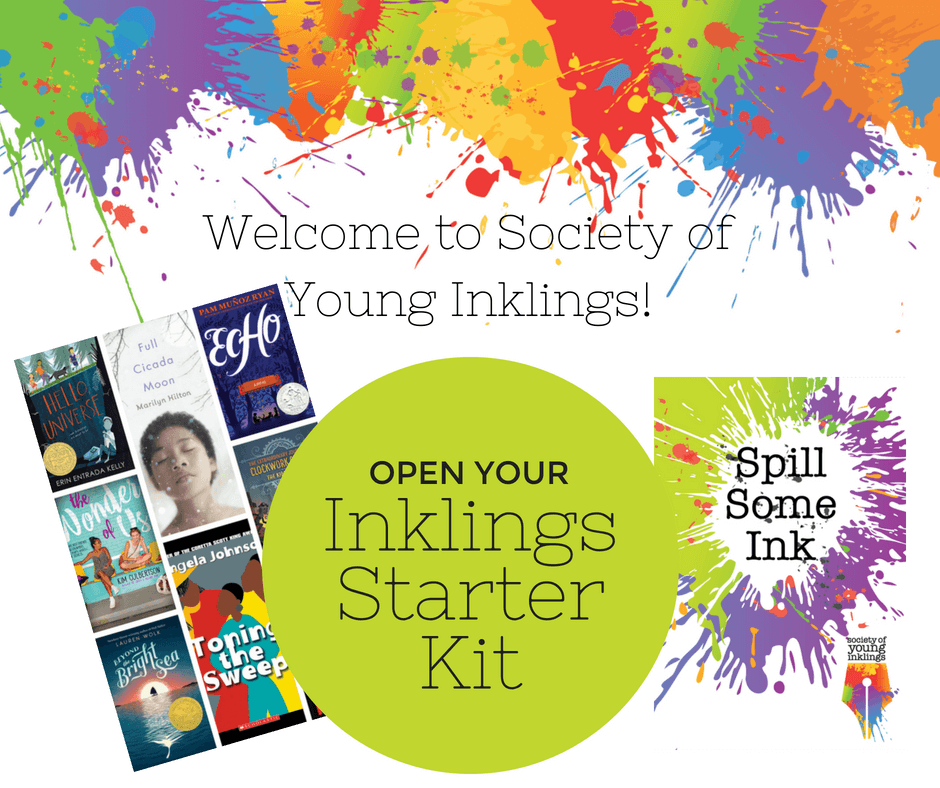
Writing Challenge
Our November Writing Challenge will definitely help you hone your craft as a writer as you work to use descriptive words!
- Look out the window and choose any tree.
- Think of an emotion.
- Share with the reader the appearance of your chosen tree using the traits of that emotion without ever telling the reader which emotion you have chosen. Through the description the reader should be able to identify the emotional tone that you are conveying. This is a great exercise to think about when detailing character or setting in your story. Remember to use your senses!
Here’s an example:
- Tree: Saguaro cactus.
- Emotion: Courage.
“She stands tall but bruised. Dark scars from years gone by. War wounds maybe. Battle scars from weathering storms. She has spikes sprouting from her skin to protect and guard her tender insides and shallow roots. She is a survivor of the elements. No matter what comes her way. She will continue to stand tall.”

An Interview with Melissa Savage
What was your inspiration for Karma Moon-Ghost Hunter?
I love reading a thrilling mystery and I enjoy writing about mysteries as well. Especially a puzzle that has yet to be solved, including the ghostly mysteries said to haunt the Stanley Hotel, the setting in which the story of Karma Moon takes place. In addition to being an author, I also work as a therapist, and I like to include one or more issue-driven arcs in my stories as well. In Karma Moon, I created a protagonist who struggles with anxiety. As a therapist, I have worked with a lot of people that have struggled with anxiety and I wanted to write a story about someone who works very hard to tame her “what ifs.”
Once you have an idea for a new project, how do you approach it? Do you work in stages such as planning, drafting, and revision, or do you have a different story of the process?
I am definitely a planner when it comes to plotting and drafting my story. I use a plot line and organize my chapters according to that. But I would also say that my best writing takes place in the editing process after I get my main idea down. In the editing process I add more voice, details, and ensure that every scene propels the plot forward.
What strategies do you use to get to know your characters?
I love to use questionnaires for my characters to get to know them well. The better you know your characters the more that will come across on the page and the more your reader will connect with the hero of your story. Sometimes I choose a picture that reminds me of my character so that I can visualize them throughout the writing process.
(If you like Melissa’s idea here, try this activity!)
What kind of research do you do for your writing projects? Do you have any strategies to stay organized as you work?
I do a great deal of research for all my books. It’s research that will get me unstuck every time I feel a little bit of writer’s block coming on. It’s important to write what you know; however, you cannot be knowledgeable about everything you write, and that’s where research comes in. I conduct online searches, I read books, I do one on one interviews, and I’ve even asked experts in cryptozoology and ghost hunting to edit my facts to make sure they were accurate before a book goes out.
Have you ever faced serious doubts while writing a book? If so, did you keep writing that book or leave it behind? If you kept writing, how did you work through your concerns?
Yes, I’m a perfectionist and will always find something to fix. Even after the novel is published! But I know this about myself, and I keep on going. It’s easy to set projects aside when a new idea comes, however if you do that too much you may never finish. So, when I’m working on a project, I focus on that project. When I have ideas that come to me during that time, I jot them down, so I don’t forget them. Then, I can go back to my idea journal when I’m ready and choose one of those ideas to start my new story.
We’re talking about wordplay this month at Young Inklings. Do you find yourself playing with words while drafting or revising? If so, how?
I love that you are talking about the importance of words and wordplay. I feel that words are very important to help differentiate and describe a character. Important words can even be applied for the purposes of creating a strong voice for our hero. I am constantly listening for phrases that kids use that I can assign to different characters. Phrases that I have used as a kid but no longer say and have forgotten about. In my latest book, my protagonist is a video gamer. I’m on a search for words in the world of gaming since I have very little knowledge in that area of expertise. I use many methods to obtain these very important words, including eavesdropping! So, be careful when you’re in the next aisle at Target. I might be listening!
We’ve also been talking about keeping a journal and capturing smaller ideas as we go through day-to-day life. Do you keep a journal or have any other strategy for collecting small, exploratory pieces?
I have a mindfulness practice every day that keeps me focused on what I want to accomplish and keeps me in the mindframe in which I want to operate on that day. Additionally, I write every day on the story I am working on. I have an idea journal where I keep new ideas as well so that I stay focused on completion of my current project rather than getting stuck and moving from project to project. So, I have an idea journal where I collect all my new ideas so that when I’m done with my current project, I’m on to the next story immediately.
What is a book that inspires you?
There are so many amazing stories that inspire me and there are so many amazing writers. I would say writers like Gary Schmidt, Tae Keller, Rebecca Stead, Jerry Craft, Anne Ursu, Kelly Yang, Judy Blume, and Jason Reynolds, all encourage me to learn and grow in my own writing. Writers read. That’s how we learn to be better writers. We learn from reading craft books on writing, and we learn from reading each other’s work. There are truly too many books that inspire me. And there will continue to be new discoveries of inspiration!
What would you tell your younger storytelling and writing self?
Growing up I never truly thought being a writer would be something I could really achieve. So, I would say to my younger writing self and those young writers who are like me, you can be a writer if you set your mind to doing it. I would advise to continue to hone your craft, just as I do. I continue to learn about the craft of writing. There is so much to know, and we will never know it all. Be open to learning and allow it to help you grow as a writer.

A special thank you to Melissa Savage for sharing with us! Read more about Melissa and her work @ https://www.melissadsavage.com/
You can follow her on Twitter at @melissadsavage and read more about her novels on her website, https://www.melissadsavage.com/

INKLINGS CELEBRATE
Join us for Summer Camp!
We’re inviting passionate young writers to join us on Zoom for writerly summer camp experiences. Each camp will include skill-building activities, time for drafting, and collaboration with peers.
Upcoming at Inklings
MAY
- Register for Inklings summer programs like 1-on-1 Mentorship, Young Author's Studio Summer Camps, and Inklings Membership
- Details coming soon for our Student Showcase events
JUNE
- 6/10-13: World Creation 101 and I Am the Story Summer Camps
- 6/17-20: Playwriting and Design a Novel Summer Camps
- 6/24-27: Reality Hunger and Literature in Miniature Summer Camps
JULY
- 7/8-11: Intro to Fiction Summer Camp
- 7/22-25: Intro to Poetry and Make Your Scenes Sparkle Summer Camps
AUGUST
- 8/5-9: Filmmaking as Dialogue and Editing and Revising Fiction Summer Camps
SPARK YOUR CREATIVITY!


